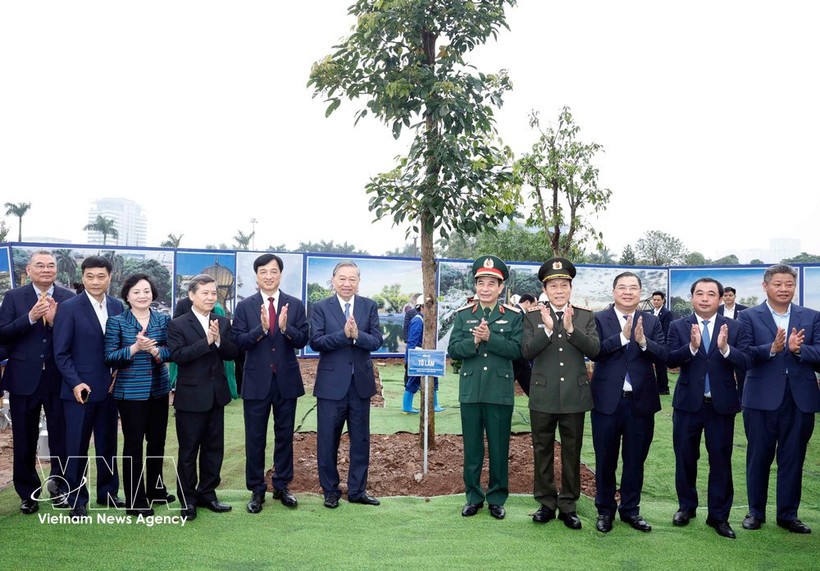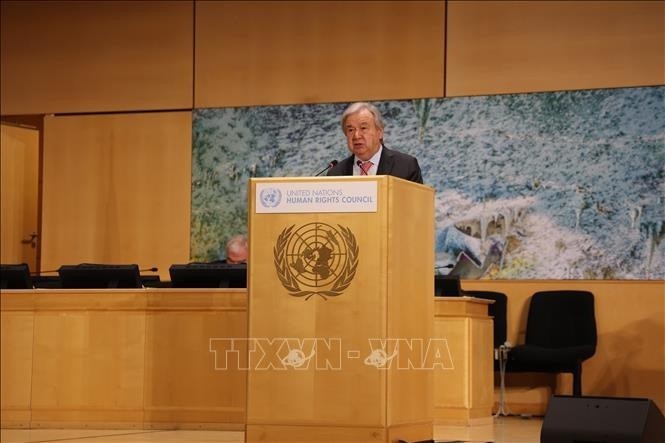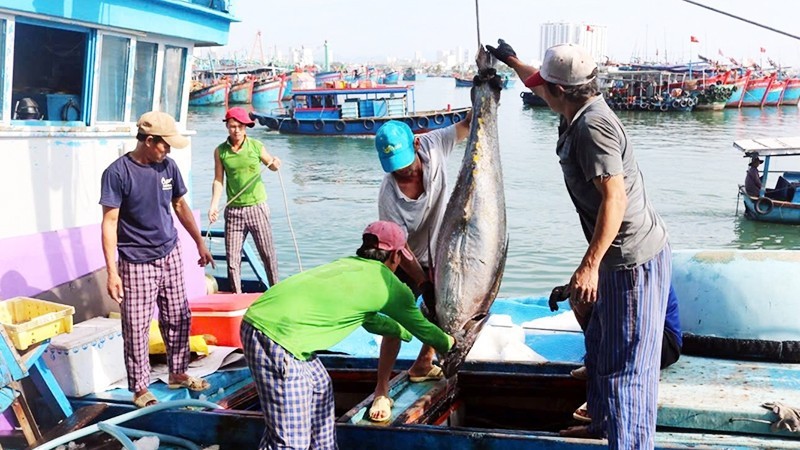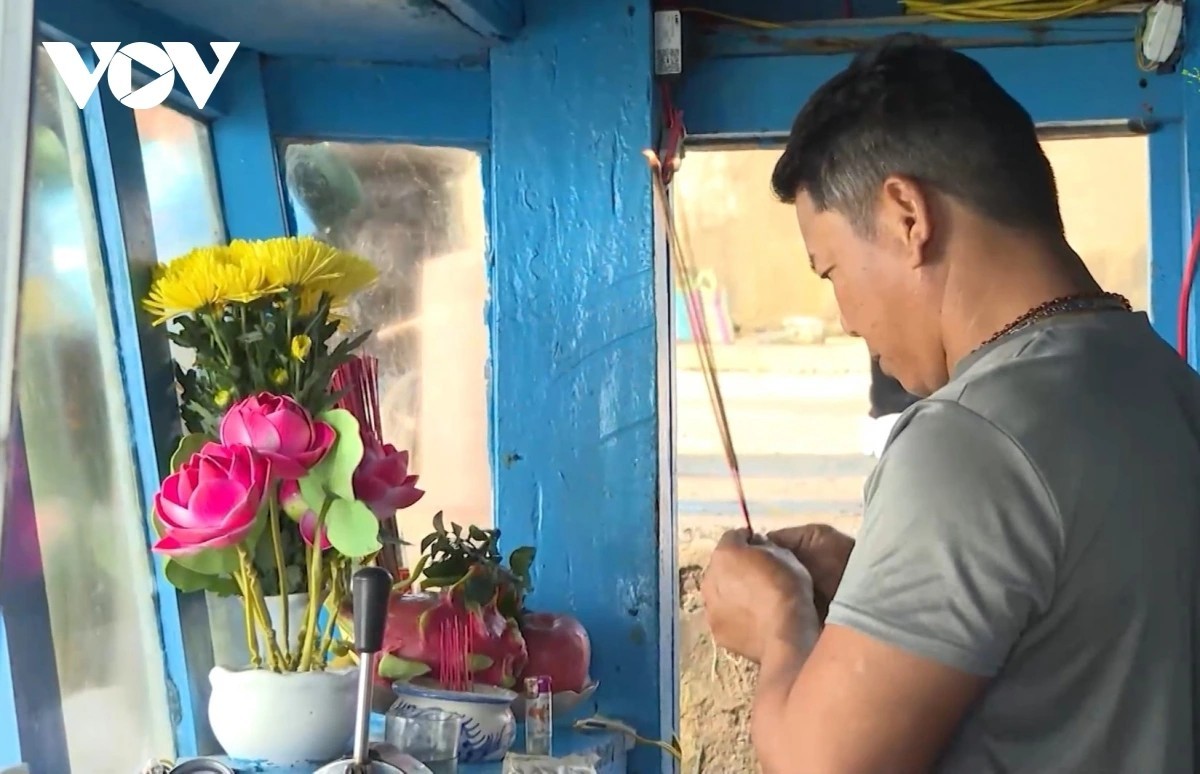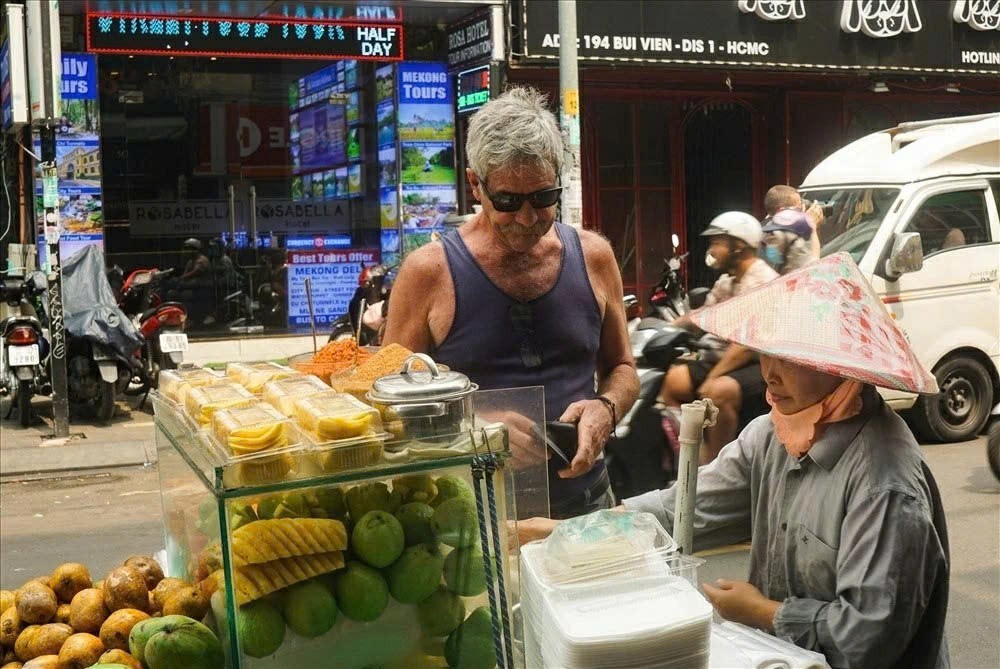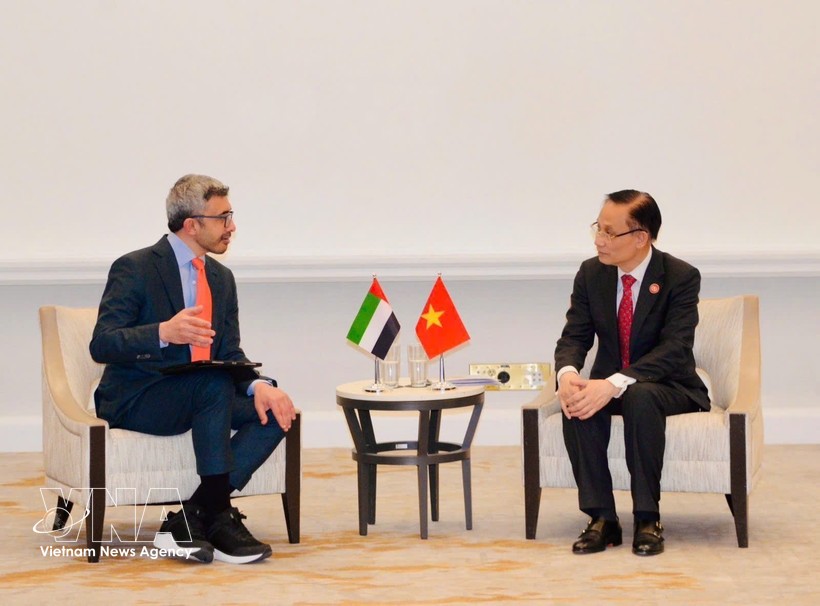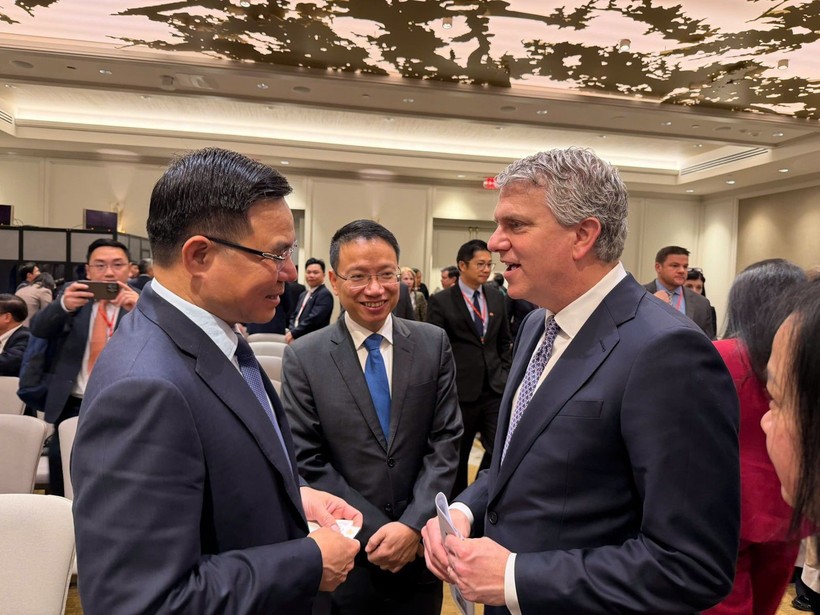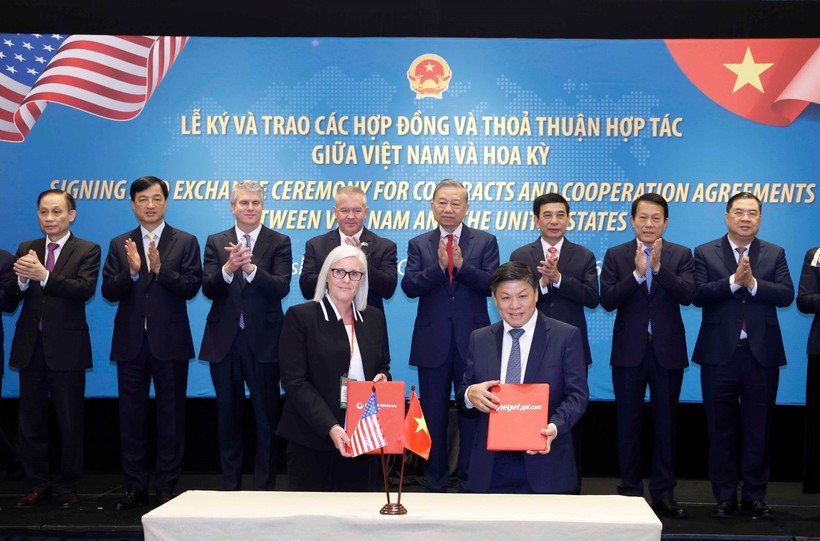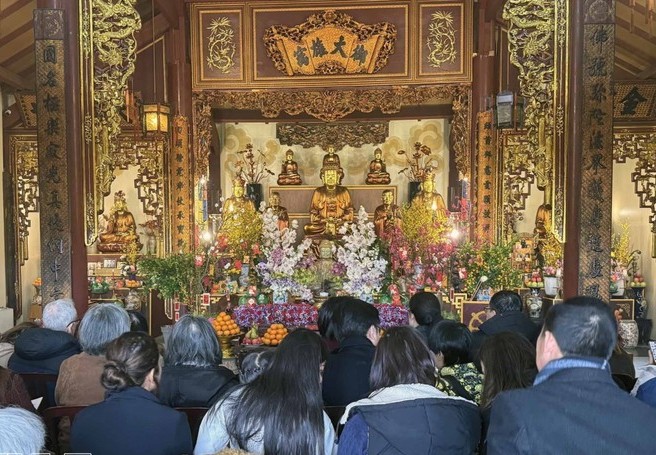Vietnam’s Cooperation with Major Partners: What’s the next steps?
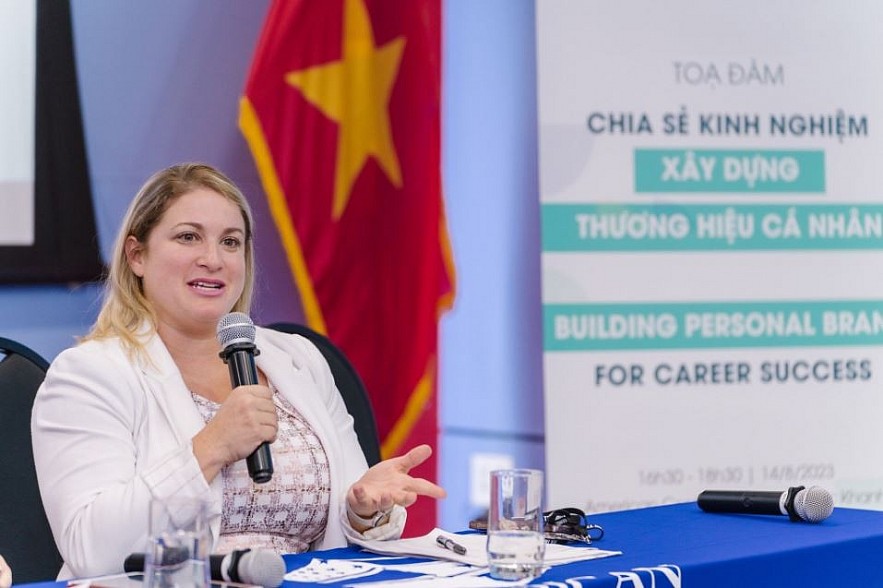 |
| Kate Barlett, Cultural Attaché of the US Embassy in Hanoi. |
Kate Barlett, Cultural Attaché of the US Embassy in Hanoi: More connections among universities need to be made
Vietnam - United States educational cooperation is growing strongly. Both countries are interested in promoting cooperation in training the young generation. Our focuses in this field include STEM (Science, Technology, Engineering, and Mathematics), English language training, and partnerships between the two countries' schools.
The United States is considering possible methods to integrate more STEM programs in educational cooperation with Vietnam. We support science teachers in Vietnam to access teaching resources from kindergarten to grade 12 and university. To access good opportunities in the global job market, young Vietnamese need to be equipped with STEM knowledge, English skills, and other soft skills such as teamwork, problem-solving, and critical thinking.
Regarding school connections, we hope to build and promote study in Vietnam programs to US students. We have discussed with Vietnamese universities to establish training programs in English so that US students and international students in general can study in Vietnam. We also have a Fulbright program with US scholars and students coming to Vietnam to study and do research. Later, when they return to the United States, they can help Vietnamese scholars and students in making applications and searching for schools in the United States.
More universities in Vietnam have established affiliate programs with foreign universities, including the United States. However, there are difficulties in applying for visas for US students to study in Vietnam. We are working with Vietnamese authorities to simplify this procedure.
 |
| Grant Coates, Chairman of Vietnam Veterans of America POW/MIA Committee |
Grant Coates, Chairman of Vietnam Veterans of America POW/MIA Committee: More cooperation needed to look for missing soldiers
Vietnam - United States’s joint statement to upgrade relations to a comprehensive strategic partnership for peace, cooperation, and sustainable development mentions that the two sides will closely cooperate in overcoming the consequences of war. This is considered a priority the bilateral relations, contributing to building trust and enhancing mutual understanding. The statement is the basis to further improve the efficiency of this area.
 |
| Christopher Valoon, American Chamber of Commerce in Vietnam (AmCham) in Da Nang |
We hope to strengthen connections and cooperation with organizations and units that are working to search for missing soldiers and overcome the consequences of war. We call on all veterans, their families, relatives, friends, or anyone who has information, stories, memorabilia... from the war to come to us. Those stories and objects are valuable clues to find the location of the MIAs. As of June 9, 2023, more than 700 American soldiers' remains have been identified, and the remaining number is 1,238. The VVA has provided more than 300 records, helping Vietnam search for part of its 15,000 missing people.
Christopher Valoon, American Chamber of Commerce in Vietnam (AmCham) in Da Nang: Vietnam needs more qualified engineers
The quality of human resources is a problem for Vietnamese businesses when attracting investment and cooperation with the United States.
In Vietnam, many people think that university degrees are more valuable than vocational training. However, this does not accurately reflect the reality of technology businesses. Many experienced and highly compensated engineers and technicians do not necessarily need a university degree. Meanwhile, students of technology and engineering universities lack practical knowledge. There is a gap between their education program and actual activities at businesses. They lack hands-on experience and opportunities to work directly with equipment and machinery.
To have better opportunities to further develop in the field of technology engineering, especially semiconductor technology, Vietnam needs to further promote vocational training, placing vocational training on par with university education.
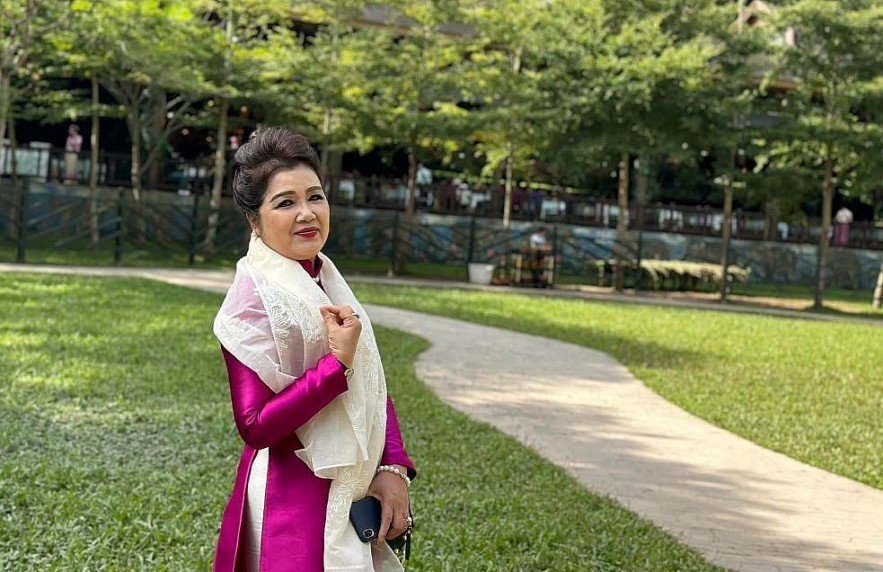 |
| People's Artist Le Ngoc. |
People's Artist Le Ngoc: Enhance exchange among artists
Vietnamese performances are well-received and loved by the Chinese public. Many years ago, when we brought performances of Vietnamese Mother Goddesses rituals to China, we received good feedback from the audiences.
In December 2023, Le Ngoc stage introduced the play "The 72nd Petition on President Ho Chi Minh" by author Hoang Thanh Du to the Chinese stage during the China - ASEAN Theater Week 2023. The play received praise from Chinese people. Some even said that thanks to the performance, they gained better understanding of President Ho Chi Minh. I believe this is a good sign for cultural cooperation between the two countries...
To promote this advantage, cultural organizations and art troupes need to create conditions for artists to study and join training courses in China.
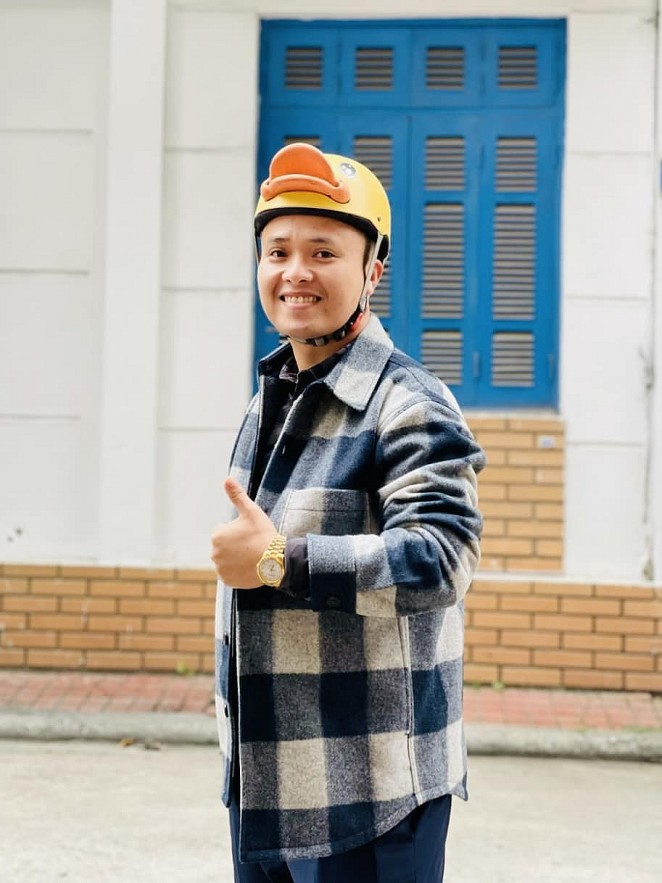 |
| Pham Duc Luan, Director of Kokoro Joint Stock Company. |
Pham Duc Luan, Director of Kokoro Joint Stock Company: Take advantage of job opportunities
The development of bilateral relations is a good opportunity for Vietnamese workers in Japan. Workers will be cared for and facilitated by the Japanese Government. Japanese companies will also have many incentives to attract quality human resources to serve economic development.
Japan has advantages in attracting Vietnamese workers such as strong investment demand in Vietnam; similarities in culture and customs; discipline at work; and modern scientific working methods... After completing their studies and working in Japan, Vietnamese workers can be recruited into positions with stable income at Japanese companies in Vietnam and Vietnamese businesses that cooperate with Japanese partners.
Vietnam needs a plan to train high-quality human resources and labor both at home and abroad to meet Japanese businesses' requirements. Businesses and people of the two countries need to increase their understanding of the laws, culture, customs, and practices for business cooperation, exchange, and trade.
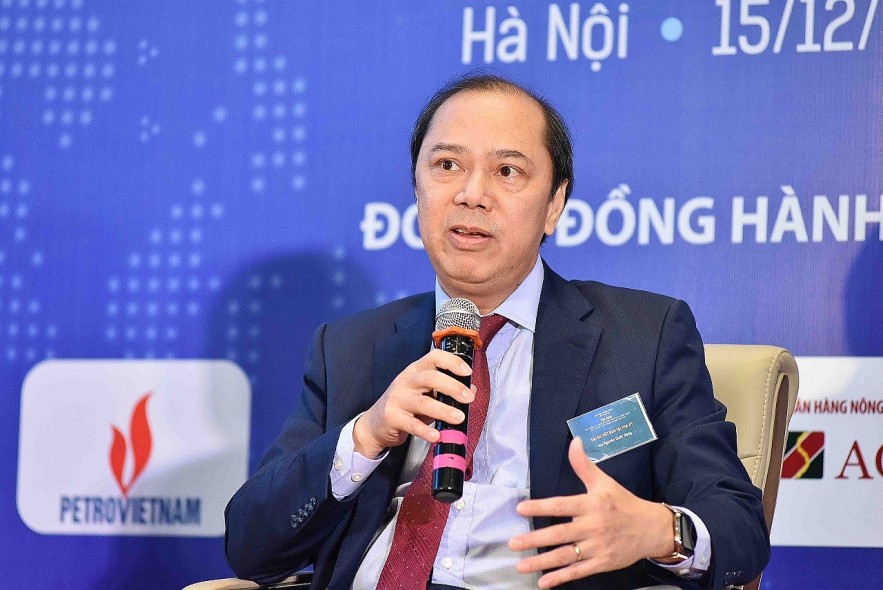 |
| Nguyen Quoc Dung - Vietnamese Ambassador to the United States. |
Nguyen Quoc Dung - Vietnamese Ambassador to the United States: Reasonable assignment according to regional thinking
US businesses often prioritize stability and sustainability of supply when investing in a foreign country. They are politically sensitive so that they can promptly orient, expand, and redirect investment to suit trends, ensuring long-term profits. Besides, they tend to work together to have the best ecosystem. They prioritize investing in destinations that have or will have other investors to create a complete, favorable ecosystem regarding infrastructure, logistics, human resources, clean energy...
Vietnamese localities need to closely coordinate with each other. We need reasonable assignments according to regional thinking when planning to create the best ecological complex to attract investment. A big part of the Vietnam-USA's joint statement and action plan to upgrade the bilateral relations to comprehensive strategic partnerships mentions economic cooperation, science and technology, and meaningful training for Vietnam's development. These documents need to be specified and a roadmap for implementation by both sides needs to be developed.
Vietnam should be more proactive because the cooperation aims to meet Vietnam's development requirements and stems from our actual needs. Vietnam needs an inter-sectoral coordination mechanism under the Government's leadership. This will act as a focal point to synthesize, review, and urge the implementation of the agreed contents. Ministries, localities, organizations, and businesses need to carefully review documents, proactively propose and review specific contents, funding, roadmaps, and cooperation; carry out preparation work on facilities and human resources; proactively contact and search for US partners and businesses.
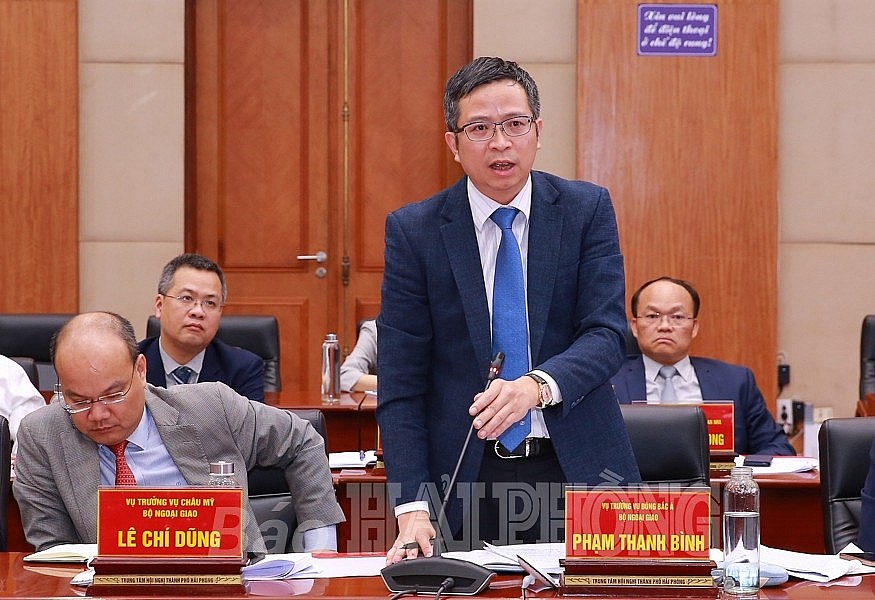 |
| Pham Thanh Binh, Director of the Northeast Asia Department, Ministry of Foreign Affairs of Vietnam |
Pham Thanh Binh, Director of Northeast Asia Department, Ministry of Foreign Affairs of Vietnam: Boostering mutual understanding at all levels
Forecasts say that by 2024, China will restore stable development, continue to promote domestic demand, encourage consumption, and enhance food security... This is considered a favorable factor to expand the Vietnamese agricultural products exported to China. Therefore, it is necessary to actively expand export markets for products that Vietnam has strengths in, such as agriculture, fisheries, and seafood, especially in Chinese localities that still have a lot of untapped potential such as the Central, Northern, Northeastern, Eastern regions…
Regarding investment, China's parallel implementation of old growth models can make the overproduction situation even more serious, and China's economy will have an even greater need to shift abroad through investment and development projects. Therefore, Vietnam needs to establish and deploy a mechanism to review periodically and regularly, urge, inspect, and evaluate the concretization of agreements and cooperation programs signed by the two sides. Communication and propaganda work should also be enhanced to guide public opinion to increase understanding at all levels, sectors, people, and businesses about the potential, advantages, and need for cooperation, thereby creating trust and motivation to promote cooperation.
Regarding tourism, it is necessary to promote the effective implementation of the Vietnam-China cultural and tourism cooperation plan for the period 2023-2027, urgently deploy promotional programs in China, and develop tourism products that suit the diverse needs and tastes of Chinese tourists in the new post-Covid-19 period.
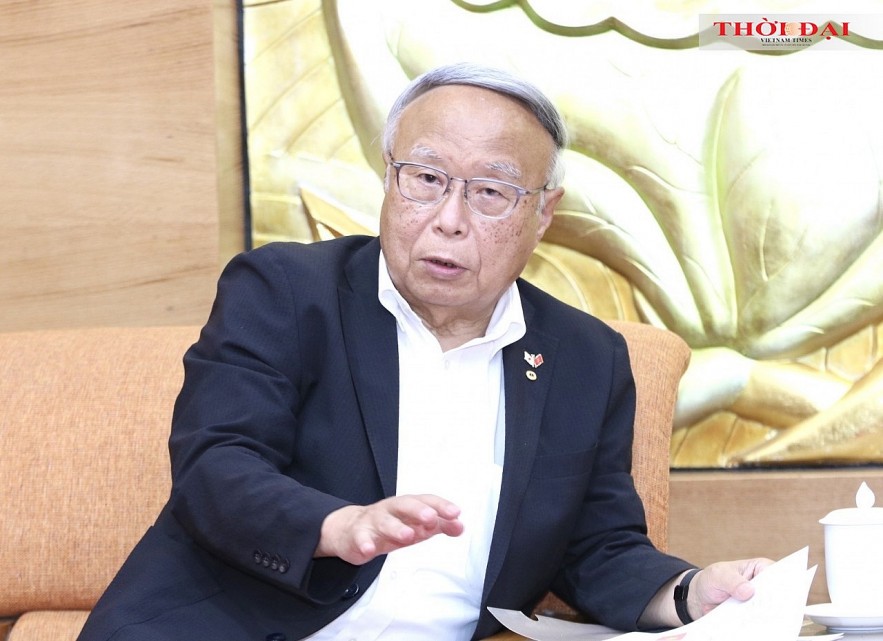 |
| Hiroyuki Ogawa, Secretary General of the Japan-Vietnam Association |
Hiroyuki Ogawa, Secretary General of the Japan - Vietnam Association: Expanding exchanges with the host community
The Vietnamese community in Japan is increasing in number, including many businessmen, workers, students, interns... Many Japanese people have also chosen Vietnam as a place to live, study and work.
However, most members of the Vietnamese and Japanese communities have only communicated in their own communities and have not yet expanded their interactions with the people of the host country.
The young generation is the force that plays a pivotal role in developing relations between the two countries now and in the future. Communication between young people in the two countries today is much easier. Therefore, it is even more necessary to promote exchange activities and increase mutual understanding amongst young people of the two sides. The Japan-Vietnam Association has organized a program to bring students from several Vietnamese universities such as the University of Civil Engineering, the University of Agriculture… to Japanese universities. This is an opportunity for students to understand the development of Japanese technology and refer to its implementation and development in Vietnam.
Vietnam has grown from a country heavily affected by war to become a dynamic country in the region. Vietnamese young people live with big dreams and expectations. Soon, we will cooperate with several Vietnamese universities to organize short-term exchange courses, creating opportunities for young Japanese people to experience the country and people of Vietnam.
 |
| Professor Dang Luong Mo, overseas Vietnamese in Japan. |
Professor Dang Luong Mo, overseas Vietnamese in Japan: Promoting the role of overseas Vietnamese in the semiconductor industry
When upgrading relations between the two countries, the leaders of both sides supported the development of the semiconductor ecosystem in Vietnam. This is a favorable condition for Vietnam to open the door to enter the semiconductor industry.
Currently, with the participation of the state, schools, and manufacturers, Vietnam has all the favorable conditions to enter this field. Vietnam needs to have appropriate models and organizational mechanisms to attract the force of overseas Vietnamese.
Specifically, the authority can invite overseas Vietnamese experts to return home for 1-2 months or work online. The state can establish a consulting group of overseas Vietnamese experts on semiconductor chips, creating opportunities for them to share knowledge and experience with the design team and help enhance competitiveness...
Vietnam should have policies on bidding, financial loans, insurance, and communication... to prioritize small and medium-sized enterprises participating in projects using the state budget.
For infrastructure projects related to factors such as information security and energy safety, regulations, standards, and technical barriers for equipment and criteria must be gradually promulgated.
In addition, domestic businesses should be encouraged to cooperate in doing research.
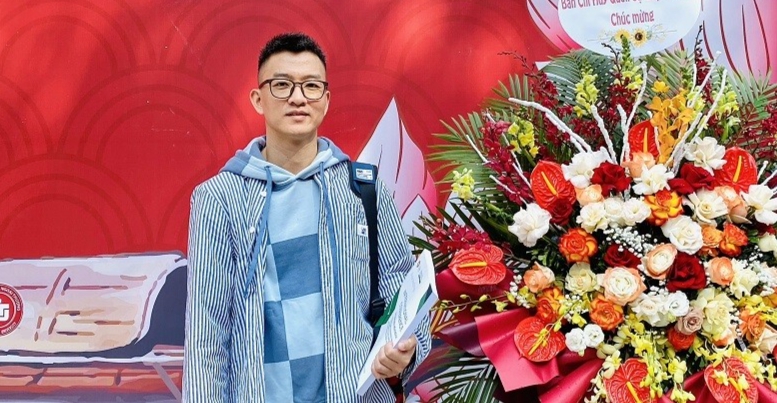 |
| Dai Yong Lin, Representative of the Trade Promotion Office of Yunnan (China) in Vietnam. |
Dai Yong Lin, Representative of the Trade Promotion Office of Yunnan (China) in Vietnam: Vietnam is a potential market but needs to improve its trade infrastructure
The Vietnamese market has a great demand for household appliances, spare parts, machinery, and equipment. Chinese enterprises have advantages in product diversity, reasonable prices, and great competitiveness. China's complete supply chain system makes it easier to export to foreign markets.
However, Chinese businesses also encounter some difficulties in the Vietnamese market such as: high competitive pressure because many foreign businesses also attach importance to the Vietnamese market, many Vietnamese consumers do not have a full understanding of Chinese products so there is still stereotype.
 |
| Pham Thi Bao Anh, Chairwoman of the Vietnam - China Business Association, Vietnam Private Business Association |
For the two countries' trade cooperation to be effective in the coming time, we hope that Vietnamese authorities will continue to pay attention and create favorable conditions for Chinese businesses to invest in Vietnam. Specifically, it is important to adjust policies to create a more favorable business environment. Vietnam needs to build a synchronous credit system, applicable to Vietnamese and foreigners living in Vietnam; support and create conditions for sustainable development, using new energy, reducing pollution, saving resources, and protecting the environment; enhance electronic payment integration to reduce cash payments in transactions.
Pham Thi Bao Anh, Chairwoman of the Vietnam - China Business Association, Vietnam Private Business Association: Getting rid of the mindset of unofficial quota exports
In 2023, we had the opportunity to attend many trade and investment promotion conferences, connecting trade between Vietnam and Chinese provinces such as Shandong, Guizhou, Yunnan, Guangxi, Guangdong... This is a positive sign showing that provinces and cities in China attach importance to trade promotion with Vietnamese enterprises.
I believe that in the coming time, there will be the strongest shift of production and investment from Chinese enterprises to Vietnam. To make good use of this opportunity, Vietnamese businesses need to overcome internal difficulties. To be specific, it is important to increase understanding of the Chinese market regarding import and export policy regulations; and professionalize traceability, testing, quarantine, packaging, and labeling of goods and products. Currently, unofficial quota export still exists, affecting the quality of Vietnam's exports to China in general.
Vietnam should coordinate with China to develop and publish popular handbooks and specific instructions on the import-export policies and regulations of the two sides for businesses to know and implement. At the same time, both sides should have further discussions in removing tariff trade barriers.
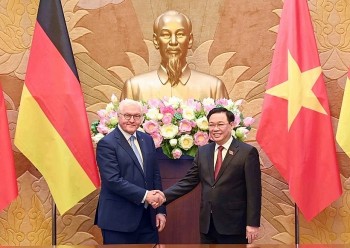 | Vietnam Seeks Germany's Support in Accessing Green Financial Sources At the meeting with German President Frank-Walter Steinmeier, National Assembly Chairman Vuong Dinh Hue said that Vietnam hopes Germany will support access to green financial ... |
 | Roundtable Promotes Vietnam-Kuwait Tourism Cooperation The Vietnamese Embassy in Kuwait has recently organized a roundtable aiming to bring Vietnamese tourism closer to travel bloggers and companies in the Middle Eastern ... |
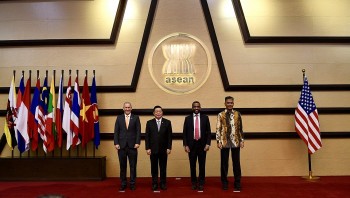 | ASEAN-USAID Cooperation Brings Many Benefits to Regional People The US Ambassador to ASEAN emphasized that as a partner, the US wishes to continue to strengthen ASEAN's central role in the region for an ... |
Most read
Recommended
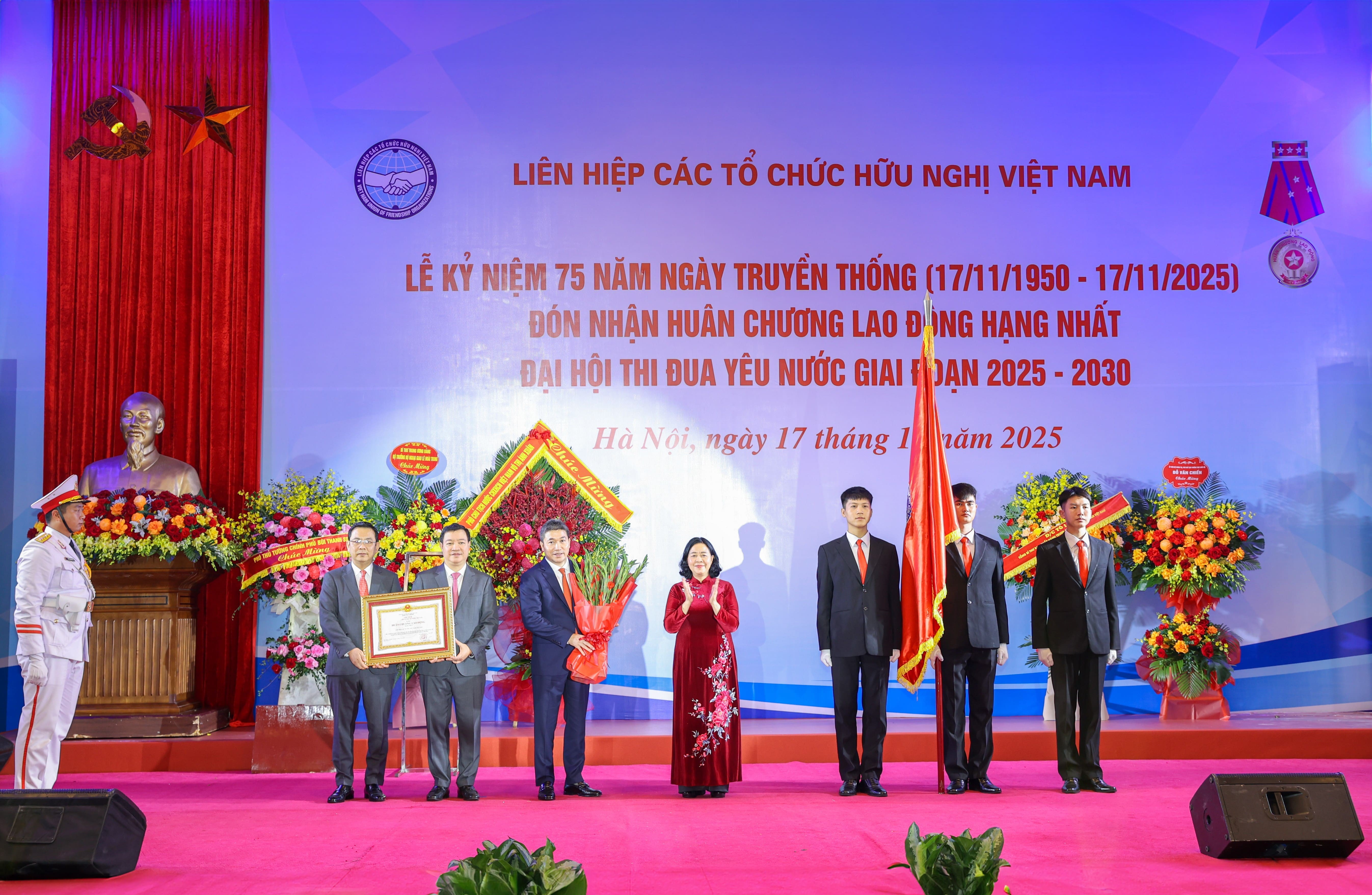 Friendship
Friendship
People-to-People Diplomacy: Change to Reach Further
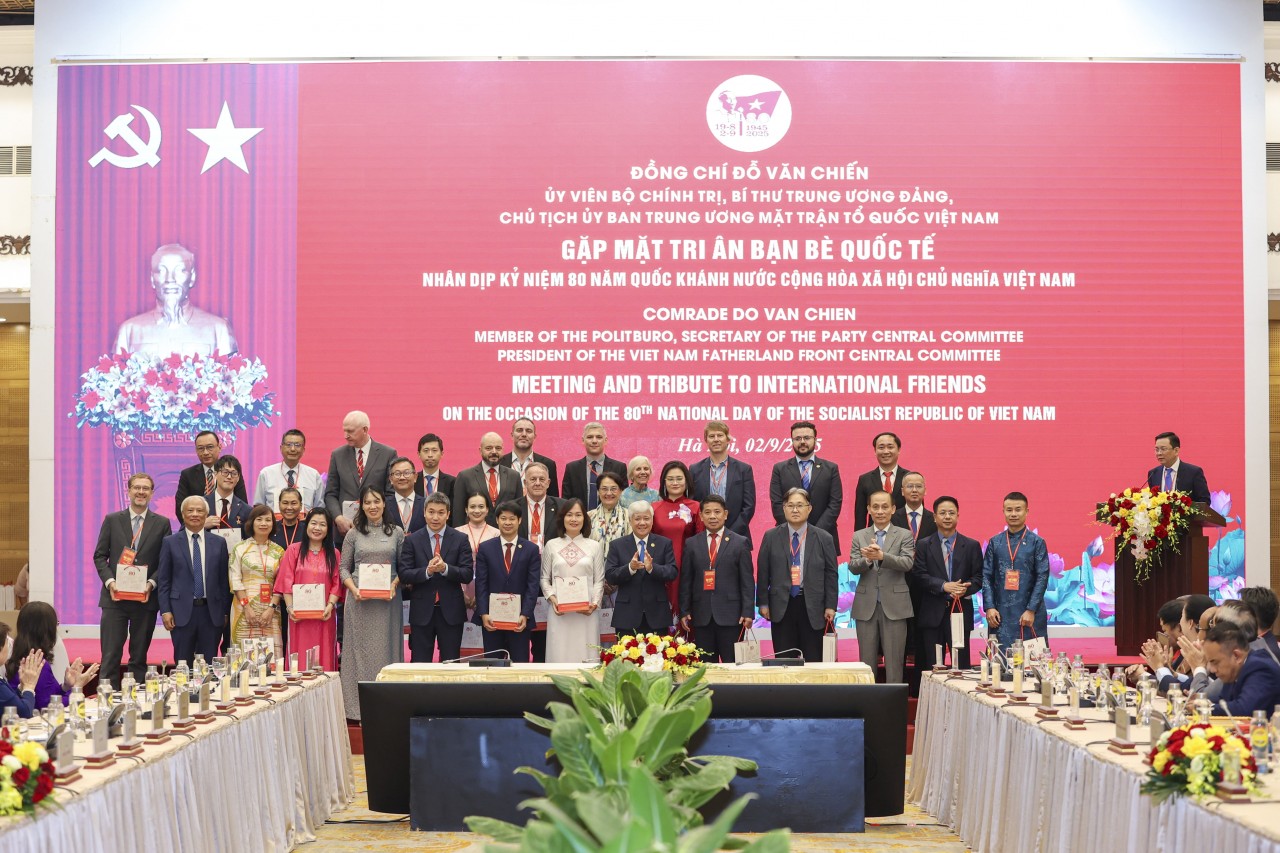 Focus
Focus
Outstanding Highlights of Viet Nam’s People-to-People Diplomacy in 2025
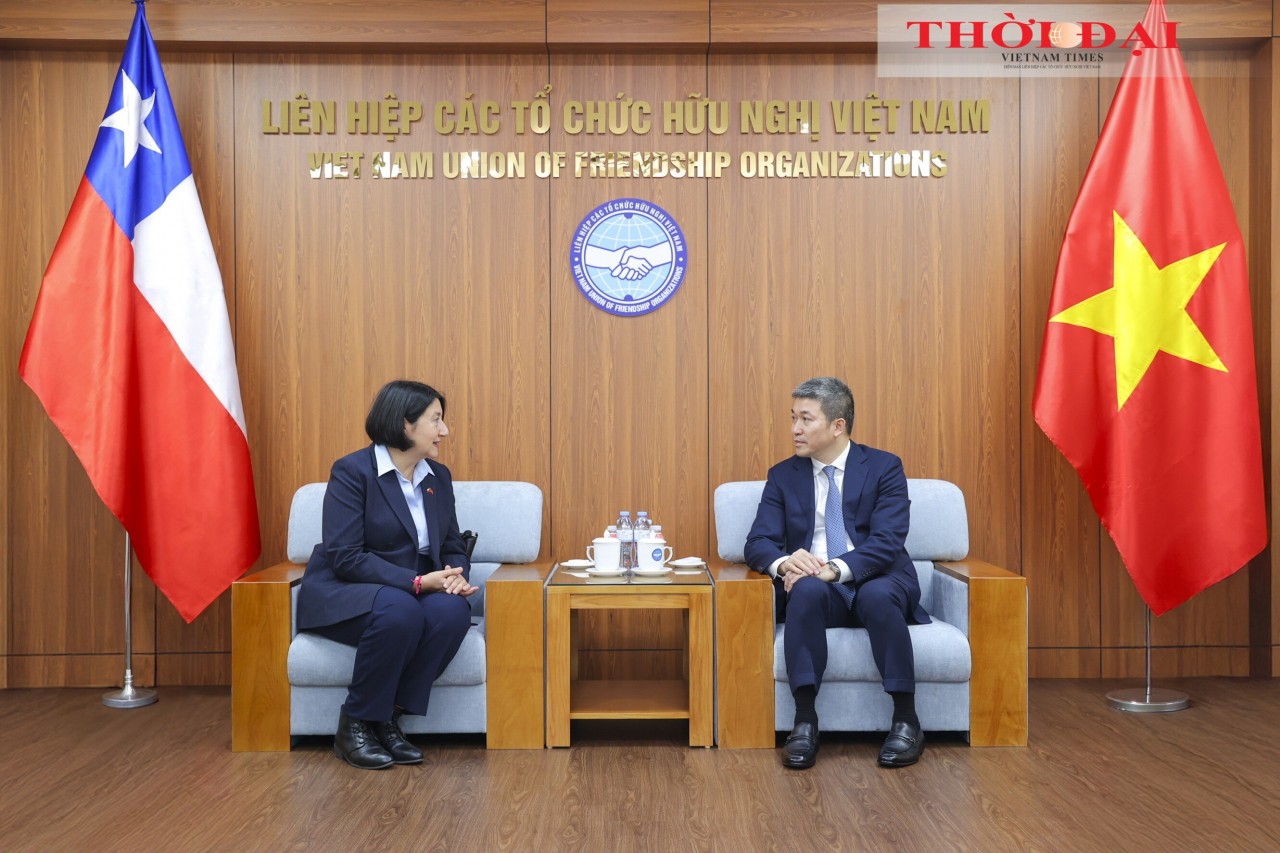 Friendship
Friendship
Promoting People-to-People Cooperation on the Occasion of the 55th Anniversary of Vietnam-Chile Relations
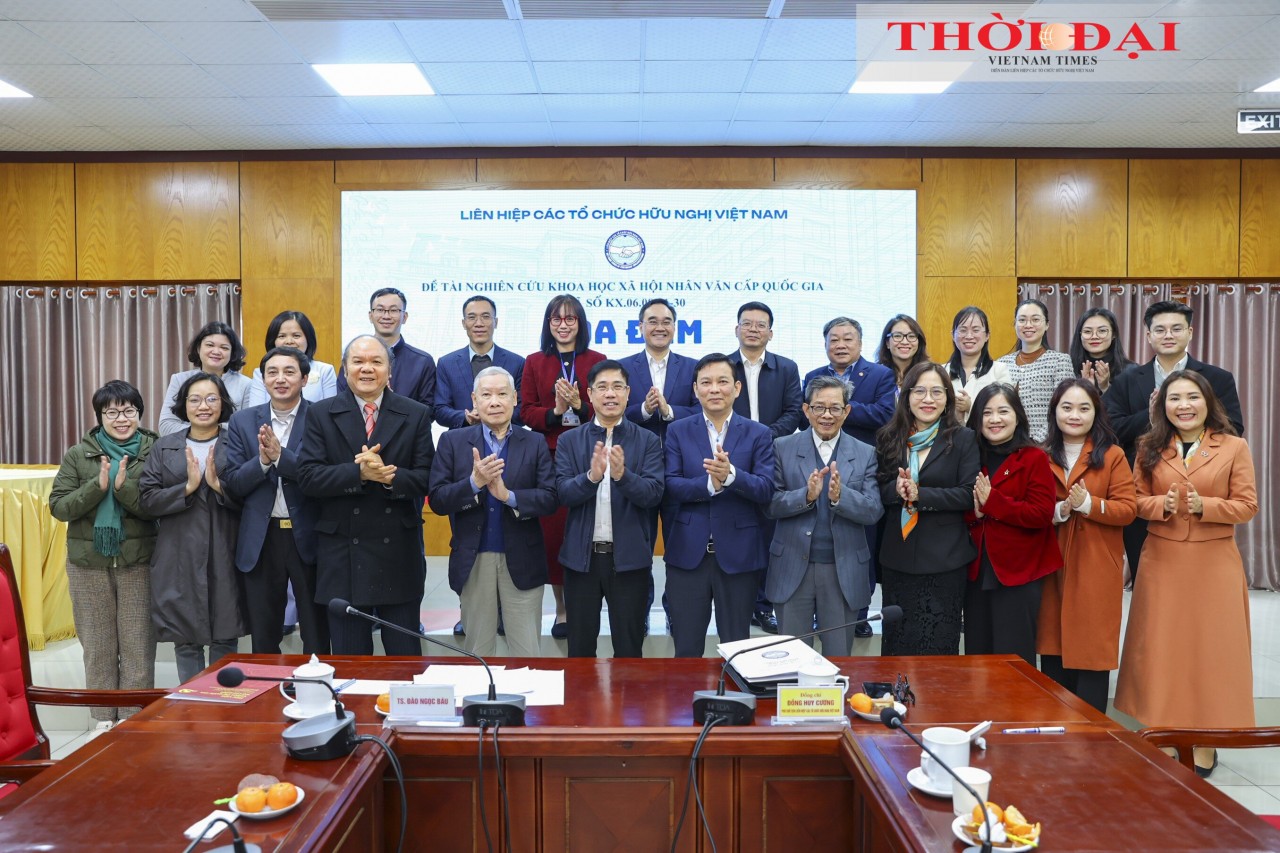 Focus
Focus
Seminar on “The Scientific Foundations of People-to-People Diplomacy in the World”
Popular article
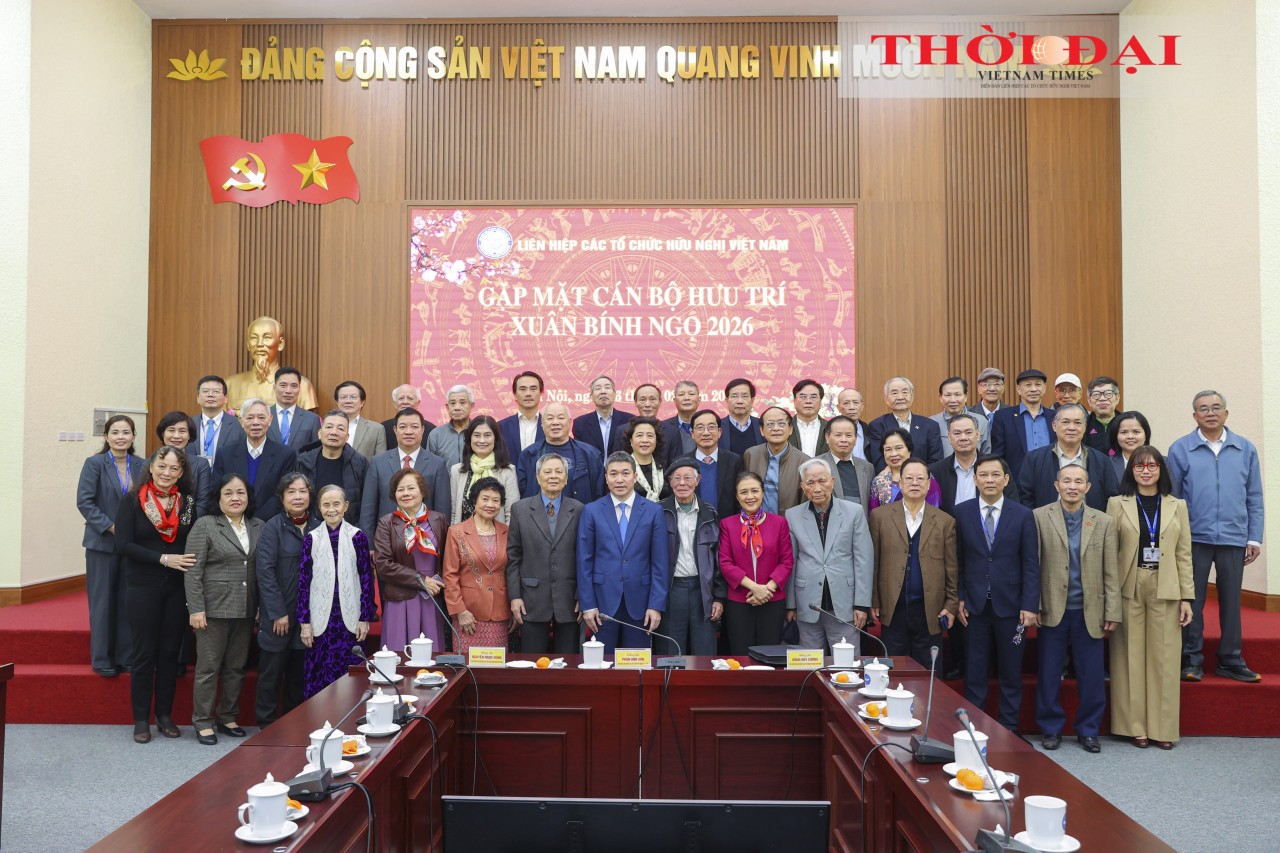 Friendship
Friendship
Viet Nam Union of Friendship Organizations: Strong Renewal in New Stage of Development
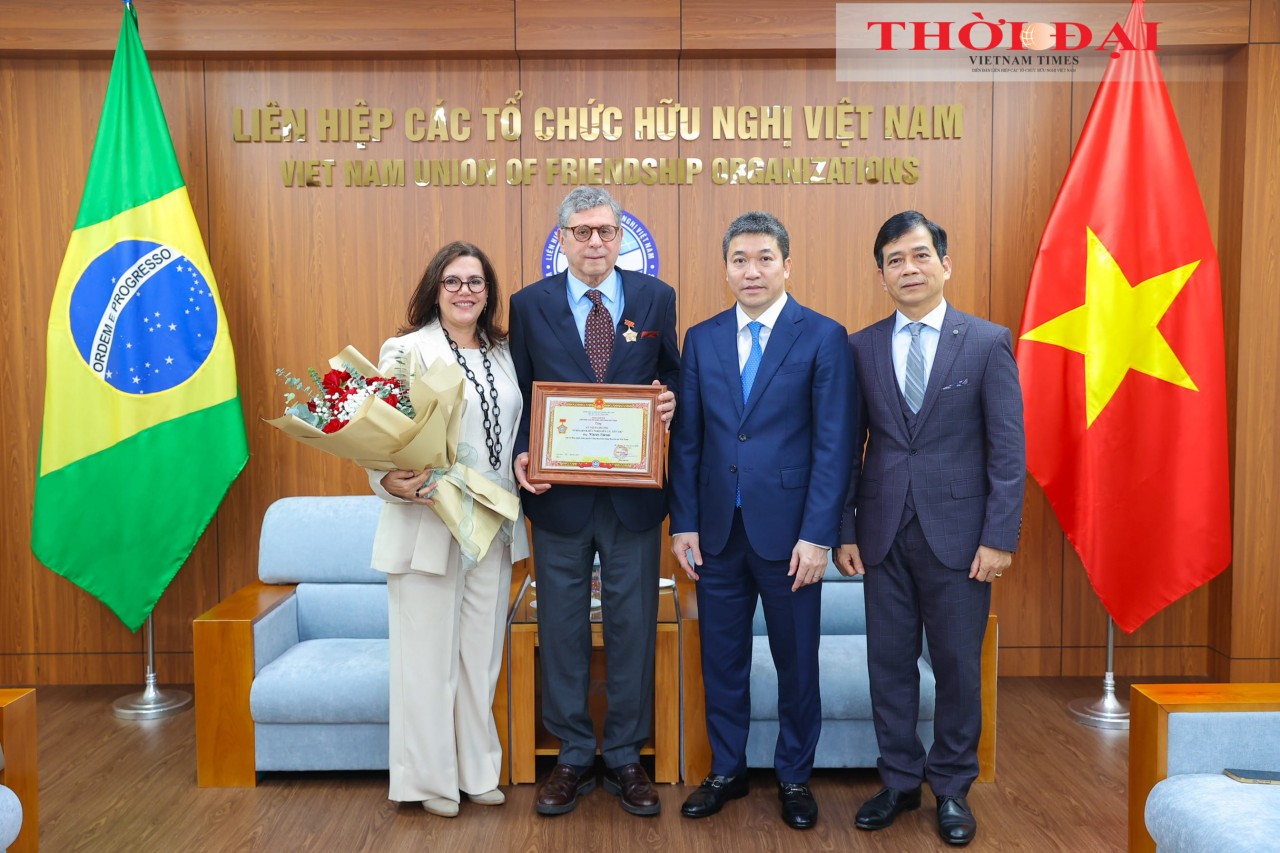 Friendship
Friendship
Recognizing Contributions of Ambassador Marco Farani to Promoting Vietnam-Brazil Relations
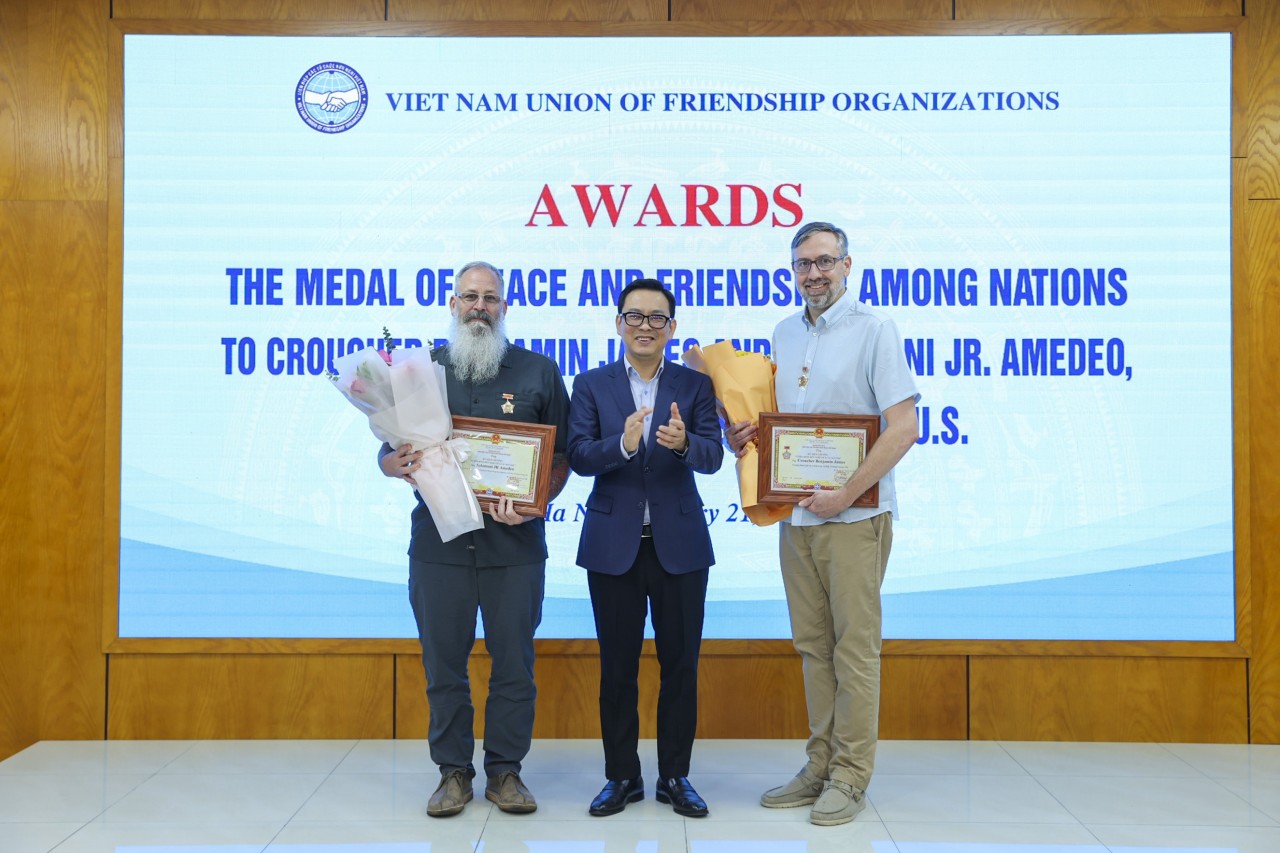 Focus
Focus
Recognizing Contributions of Two George School Teachers to Promoting Vietnam-US People-to-People Exchange
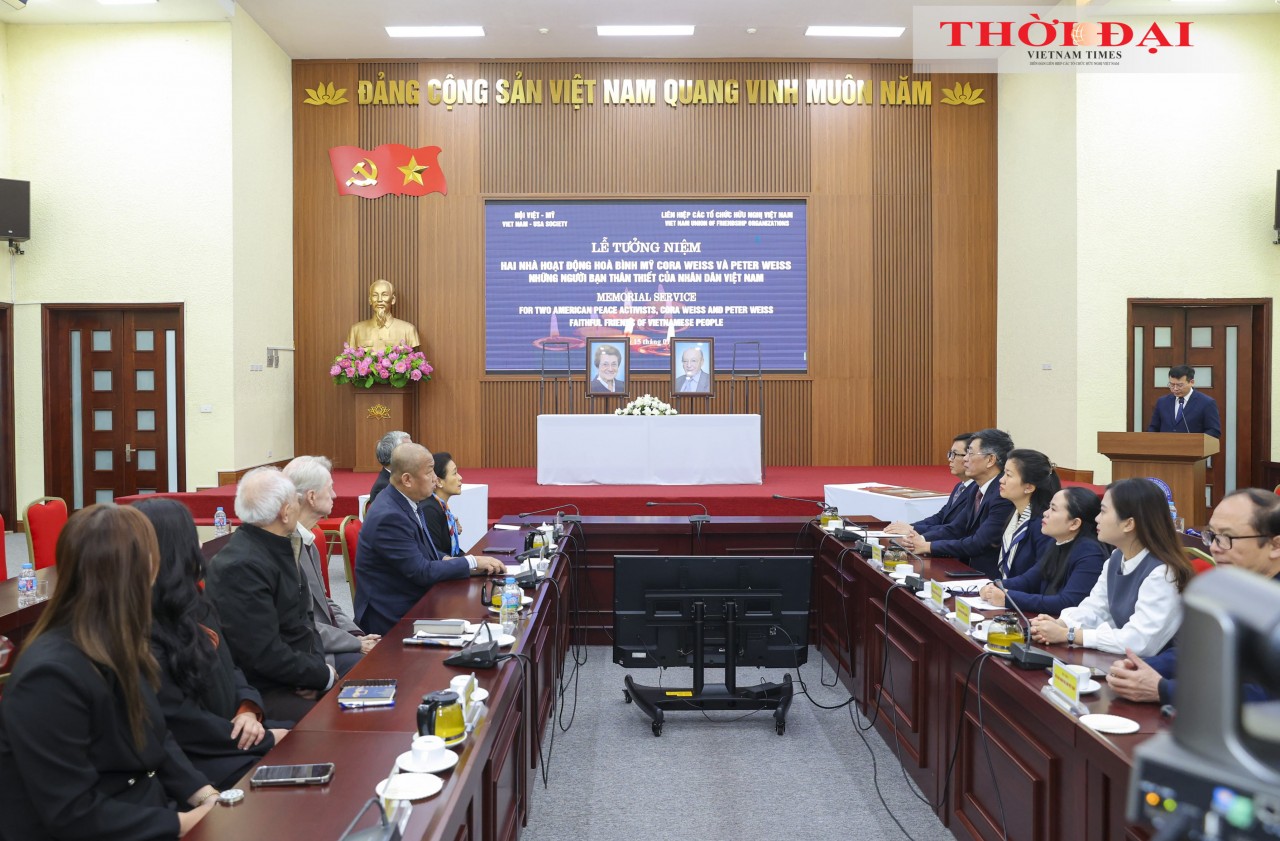 Friendship
Friendship




